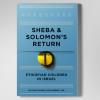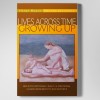The next few weeks’ columns have three aims. First, to cull the ingredients of a kind of genius, ingenuity found in Steve Jobs. Second, to open possibilities about how we can think about our psychoanalytic work from how Jobs and Apple thought about their creativity, design and the making of elegance. Third, to explore Apple as an institution: one that’s made a dent in the universe; invented the future; read our desires often before we were aware of them; nurtured, applied and executed imagination; and (paraphrasing his wife) empowered, advanced and put tools in the hands of humankind. What can psychoanalytic institutions learn about institutions that excel, that change our lives for the better, a cardinal feature of psychoanalysis? This column’s brevity can but further thought and discussion. The three topics will be covered in a series of weekly columns.
Walter Isaacson started his biography, “Steve Jobs,” (which I review and quote here) at the dying Jobs’ invitation. Jobs gave Isaacson full access: former lovers, friends and enemies, collaborators and competitors (such as Bill Gates and others). Jobs asked only for input on the cover photo, which he chose on his deathbed.
Apple products, in which Jobs was involved in stunning detail, not only reflect aspects of the man (and the team he constructed), but also have changed our world for the better, has excelled beyond most other related high-tech competitors. That makes our task — studying ingenuity — easier: we can learn about the man’s genius from his products. He was intimately, avidly, even obsessively involved in every detail of every product, even its packaging, even its advertising, such as the 1984 “anti-1984” award-winning TV ad in which a women athlete smashes the screen of the Big Brother talking head CLICK HERE TO WATCH AD .
And I am an Apple devotee: in 1996, as Medical Director of the San Francisco Family Mosaic Project, with a staff of about two dozen, we had an almost full-time I.T. person to keep my City-sanctioned C…q computer and our other PC’s alimping. When I asked what it was like for her to care for her own computer, she responded, “I have a Mac; no patience for all the crashes and tech problems with these PC when I’m home.” I junked my C…q (It junked itself; I came only to bury, not praise it.) and bought a Mac. When I brought my Mac to one of the first Apple stores (Palo Alto), while waiting at the Genius Bar, a friendly fellow introduced himself and raved about his Mac: David Packard (Yes, as in Hewlitt-Packard) effused about the four other Macs he had at home, adding with a wink that HP still made good printers. I learned recently from Apple that I’ve bought forty products since then (a good number are iPod shuffles).
This is not a psychobiography. There are few geniuses who’ve done good psychobiography; Erikson in particular, but Robert Coles, Ostwald on Glenn Gould and Freud’s Schreber also qualify. As psychoanalysts, our usual material is the process in the office; we are careful not to jump to judgements about our psychoanalysands. In our offices, our analysands respond to, correct, modify our interpretations: a dialogue proceeds with editing and revisions that result in a most plausible life history. Not so in many psychobiographies; books can’t dialogue. Yet, many psychobiographies are cavalier about drawing conclusions from written or historical material.
Rather, I will suggest that we plumb Isaacson’s book to learn what we can about the ingredients for genius and ingenuity, the drive for perfection, simplicity and beauty, to make a “dent in the Universe,’’ in Jobs’ words. At times, the descriptions of Jobs, including calling himself an “asshole,” will be harsh. At times, readers may want to use diagnostic terms to categorize Jobs. Hold judgment; in fact, let us not judge at all, but learn.
Bare bones background. Jobs was born to two Midwest University students and given up for adoption, provided he be placed with college graduates. When the prospective adoptive couple learned it was a boy, they backed off. Jobs was shipped to the next waiting couple in California, a working class husband and wife, the father known for his refurbishing cars (and doing fine mechanical work for the defense industry). The twenty-three year old birth mother, on learning of this, tried to retract. A desperate negotiation followed: the adoptive parents would put aside funds for college. Jobs knew that his father bought, refurbished and sold junkers, to salt away dough for his college. The garage … that same garage where the teens Wozniak and Jobs built their first computer … was dad’s workshop: a magical, immaculate, orderly kingdom of repair, rejuvenation, exactitude. An earlier Silicon Valley garage had given birth to Hewlitt-Packard. Years later, at Reed College, Jobs dropped out after a few weeks, in part, he said, because he knew how much his parents were paying for this education and felt guilty. He hung around campus for some months, permitted to audit courses, especially one on typography which influenced his choice in the typefaces in which you see this written. I leave it to the interested reader to learn more about his early life, except to return below to address how he always considered himself “chosen” by his adoptive family and adored both parents; he virtually worshiped his father, even when Jobs was about fifteen and realized that he understood something about engineering that his father didn’t get.
Jobs’ creations reflected his inner life. Look at his innovative products Isaacson lists to capture the qualities of this man: iMac (desktop publishing and graphics interface); iPod (thousands of songs in one’s palm); Toy Story/Pixar (the playful, childlike nexus of digital imagination); Apple Stores (defining a brand associated with elegance and simplicity); iTunes (resuscitating the music industry); iPhone (shifting all this into a phone: music, photos, videos, email, the Web); Apps (a new content industry); iPad (platform publishing and video) iCloud (seamless syncing of devices); and over all this, Apple: a company that meshed art with technology to unleash the imagination of its workers and customers.
Here’s how others described Jobs, those who knew him well. He was “a naif toyed with by the angels,” passionate and sensitive; callous and sentimental; inspiring and flawed. He had laser-like focus, a unique kind of empathy (for the technical and aesthetic needs of others), perfectionist, petulant and prickly. He loved the ascetic and elegant, minimalist and pure. He could be firm and confident (some competitors called this arrogant). He had passion, intensity, was attuned to the nuances of the environment. He engaged in deep collaboration; valued aesthetically the austere that could be fondled; believed thinner is better.
Jobs’ three Apple principles are: 1) eliminate the unimportant; 2) impute the desired (packaging should anticipate the beauty, elegance, competence within); 3) and simplify (simplicity equals sophistication). Zen gardens he appreciated; a Zen sensibility he brought to what he desired, then created. When asked about work at Apple, he said, it’s not a job, but a life.
Our focus here is what ingredients fostered this unique kind of genius. Some character traits may be present that may not contribute to the nature of his genius: he called himself an asshole, others said he could be coldly cruel, but we, as psychoanalysts, need parse, weigh, ask if these character ingredients contributed to the creative process.
Beginning with Wozniak, he associated and later recruited stunningly bright people to collaborate with him. He was demanding, yet made his better decisions when those around him challenged (sometimes respectfully, not always), showing a dedication to the aesthetics, the potential within the product at hand (rather than personal aggrandizement or personal attack). He insisted that a product was fulfilling an essence not yet realized (an echo of Plato’s idea that objects try to achieve an ideal existing in the universe, or at least the artisan’s mind.) He insisted: the way to predict the future is to invent it. He looked down upon Bill Gates because Microsoft was a copier of things, an assembler, made mediocre products that were (almost) good enough, showed little aesthetic sense. One great battle between Jobs and other high tech companies (particularly Gates’ Microsoft) was Jobs’ insistence that a product be fully internally integrated, be self-sufficient, could not be tampered with by others. Gates posed this as the battle between “open” systems (with its cultural code of “open” being “good,” more “democratic”) versus “closed” systems. I suggest we frame this differently: taking care of the whole matter at hand, rather than parsing out components to others who may not have the same level of commitment and belief or knowledge. Jobs integrated software and hardware. As analysts, we understand the nature of working with all that the patient brings us, rather than fragmenting and parcelling out the inner life to others, or following Freud, an integration of brain and body.
Space here limits. I will focus on one ingredient of Jobs’ ingenuity, drive, specialness: his sense of being a “chosen” baby, chosen by his parents, rather than his focus on being abandoned (although, from his biography we see that this continued to play a tragic ostenato in his life). How does choseness contribute to his ingenuity and creativity and the company he built? The latter is more easily addressed. He demanded and was proud that everyone at Apple as an A team player; the B teamers could work for someone else in the Silicon Valley. That is, he chose his co-workers and treated them as a chosen people. Yet, the idea of being chosen cuts in two ways, Freud taught in “Moses and Monotheism.” On the one hand, feeling chosen results in a belief in oneself and an ability for the Jews to endure severe vicissitudes over millenia. It contributed, as he wrote in his talk to the B’nai Brith, in what he believed was his ability to endure isolation, denigration, disbelief in the early decades of his work. Perhaps more so, as much of his early work was based on his self-analysis, the Dream book in particular, Freud worked with a sense that plumbing the depths of the mundane, the obscure, even the obscene of his inner life could result in something productive, even sublime. On the other hand, being chosen, Freud wrote, can elicit envy, sometimes because the Jews choseness could be seen as a stubborn stiff-necked quality. Envy, Augustine called one of the seven deadly sins. While Augustine’s intention was that the individual who envies was sinning, as analysts, we can reinterpret Augustine. Generating Envy in others can result in their hostile, even murderous impulses towards oneself. Feeling chosen can result in a sense of belief in oneself, a specialness; and feeling chosen can also elicit envy and nasty responses in some others. Such “choseness” envy is heard in this brief experience of an Israeli diplomat. Decades ago, a senior Arab minister offered to meet secretly with the Israeli minister in a European city. When the Israeli entered the Hotel room of the Arab, the flowing-robed minister opened with “So, what makes you people so chosen?” To which the Israeli responded, “Want the job?”
What can we speculate are the ingredients of ingenuity in Jobs, based on what we read, what we know of his products, how he has made a dent in our universe? The sense of choseness permitted him to believe in himself and what his mind sought; it resulted in his choosing those whom he felt would give their best. He believed in a better future, in creating this future, at times not being certain what would become, but knowing that something good would become if one is severely demanding (of oneself, of others). He pared away and pared away until he saw the essence of what the thing needed to become. His aesthetic was one of the sculpture, as Michelangelo described the art: removing, chipping, sculpting away the stone until the sculpture within the marble is revealed. (Unlike painting, in which layers are put on layers to create something.) This sculpting, this parsing, this feeling for the sculpture within, is closer to our concept of psychoanalysis than is the layering on of paint (which perhaps applies to other psychotherapies). While this is partial a list of character traits for ingenuity, it is what we can begin to discuss and explore as psychoanalysts. Winnicott spoke of symptoms as creative acts, suggesting that “creativity” is not limited to artists or scientists; rather it is a quality that every person has. From this, we treat the symptoms with respect, even as we probe, explore and help remove the dross to reveal the elegance of the person within. In this sense, as much as we can learn about ingenuity and a kind of genius of Jobs, we can begin to apply to our psychoanalytic work. This I explore in the next post.



